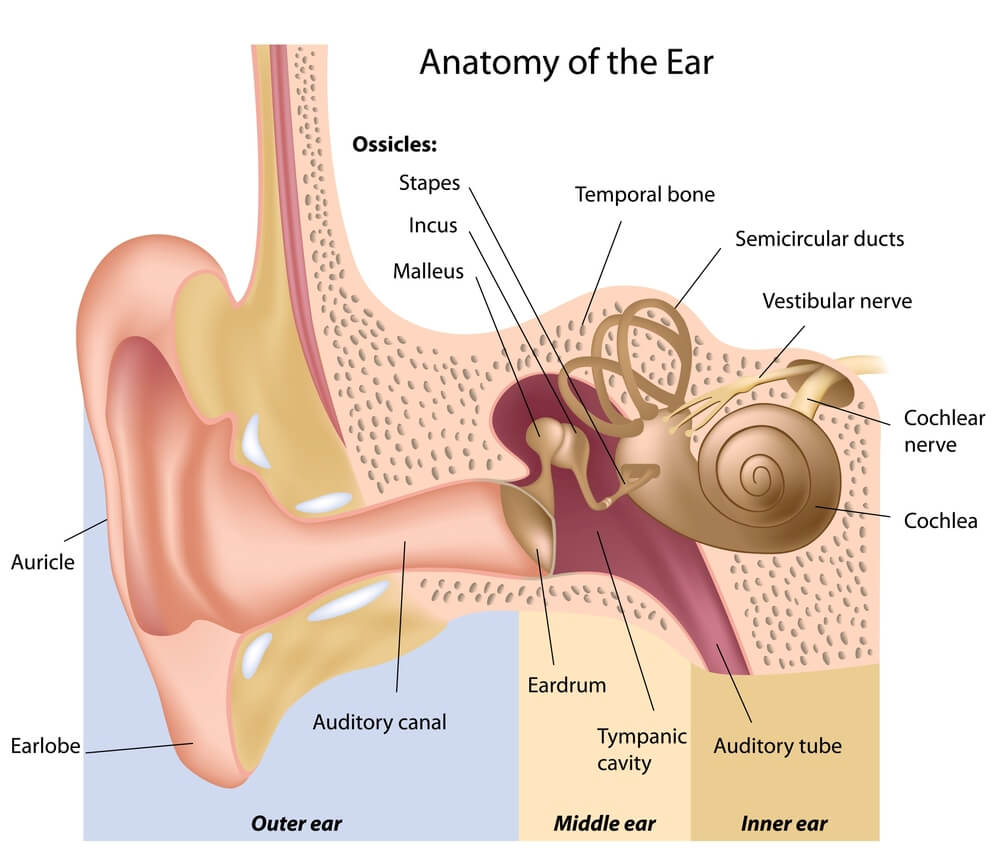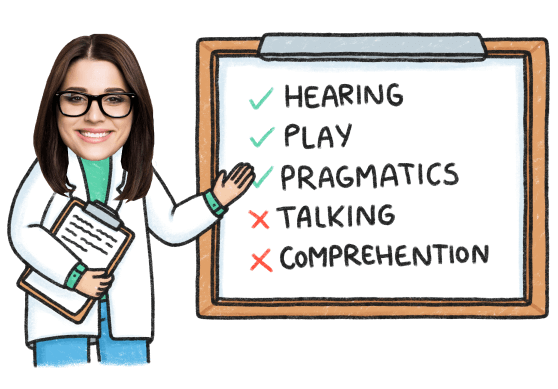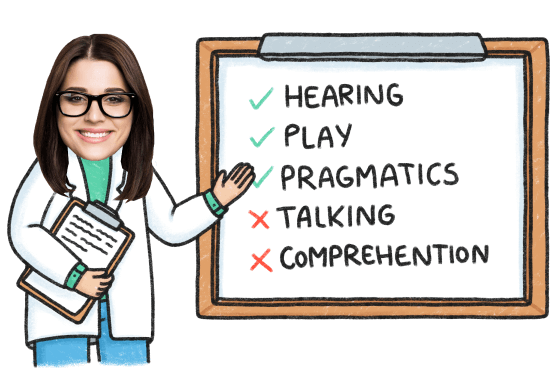Recurrent Ear Infections and Speech Development
Feb 5, 2022 How many of our kids have had ear infections as babies? They are the worst, especially because they can’t tell you what’s wrong.
I want you to think about what happens to your hearing when you are underwater in a swimming pool. Can you hear clearly? Does everything sound muffled?
That’s exactly what children hear when they have an ear infection, PLUS the added pain that comes along with it! Wouldn’t that be a miserable way to exist for about a week?
So if a child gets recurrent ear infections, will it impact their speech and language development?
Start your free trial today and explore more than 1,500 Speech and Language Development Activities your little one will love! ❤️
Boost Your Child’s Speech Development!
Improve language & communication skills with fun learning!

The Ear is a Complex Organ
Most people don’t realize how complex the ear really is! It’s made up of three main parts:
- Outer Ear
- Middle ear
- Inner Ear.
The outer ear is basically what we can see, the middle ear contains the bones that move together to process sound, and the inner ear comprises mechanisms that transfer sound to our brains!

When infections happen, they typically occur in the middle ear and don’t allow correct processing and hearing of the sound.
New Research
A study by the University of Western Sydney has revealed that recurring middle ear infections in early childhood can have a detrimental impact on language and literacy skill development in later life.
Study author, Dr. Heather Winskel, from the University’s School of Psychology, says middle ear infection or otitis media (OM) is the most common childhood illness. It’s one of the main causes of children’s hospitalization up until the age of 1.
At least 70% of children are likely to experience at least one episode of otitis media before they are three-years-old and for many children it is a recurrent problem.
Dr. Winskel
The project compared two groups of children aged between 6 and 8 years from schools across western Sydney – 43 children with an early history of repeated episodes of OM before the age of three, and a control group of 43 children (children who did not have repeated ear infections) matched for chronological age, gender, and socio-economic status.
The Findings
The research found that the children who had recurrent OM throughout that critical language period scored lower on expressive and receptive language tests compared to their peers.
Researchers also found that they had difficulty with word recognition. This means, if you told your child to close their eyes and repeat a word back to you, the word wouldn’t be clear. This shows that there is damage to the inner ear from the recurrent ear infections.
When Does Otitis Media Happen?
The peak incidence of OM occurs when children are between 6 and 18 months, which is the most critical period of language development, when the infant is tuning in to the speech sounds that characterise their native language.
This process allows young children to break into the stream of speech and eventually map sound onto meaning. The process breaks down if they can’t hear correctly.
Dr. Winskel says the findings support the view that if a child experiences OM during the crucial first years of life, it may have long-term effects on subsequent language and literacy development.
Please keep in mind, if your child gets tubes or has remediation for the ear infections, that will increase their ability to keep up with their speech and language development. The children observed in this study either received tubes later or never received them at all.
If you are concerned about the number of ear infections that your child is having, make sure you talk to your pediatrician to see if there are options available.
Have a question for our Speech Therapists?


